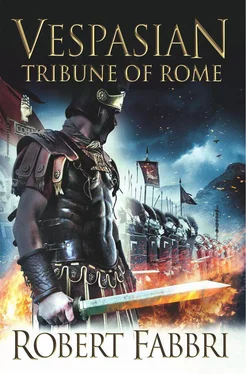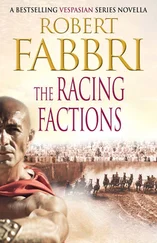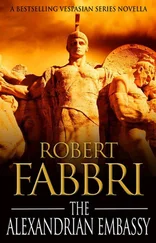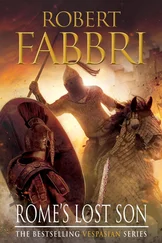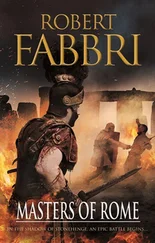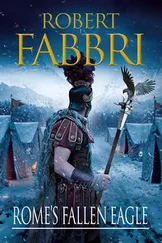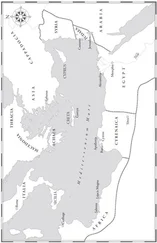Robert Fabbri - Tribune of Rome
Здесь есть возможность читать онлайн «Robert Fabbri - Tribune of Rome» весь текст электронной книги совершенно бесплатно (целиком полную версию без сокращений). В некоторых случаях можно слушать аудио, скачать через торрент в формате fb2 и присутствует краткое содержание. Жанр: Исторические приключения, на английском языке. Описание произведения, (предисловие) а так же отзывы посетителей доступны на портале библиотеки ЛибКат.
- Название:Tribune of Rome
- Автор:
- Жанр:
- Год:неизвестен
- ISBN:нет данных
- Рейтинг книги:3 / 5. Голосов: 1
-
Избранное:Добавить в избранное
- Отзывы:
-
Ваша оценка:
- 60
- 1
- 2
- 3
- 4
- 5
Tribune of Rome: краткое содержание, описание и аннотация
Предлагаем к чтению аннотацию, описание, краткое содержание или предисловие (зависит от того, что написал сам автор книги «Tribune of Rome»). Если вы не нашли необходимую информацию о книге — напишите в комментариях, мы постараемся отыскать её.
Tribune of Rome — читать онлайн бесплатно полную книгу (весь текст) целиком
Ниже представлен текст книги, разбитый по страницам. Система сохранения места последней прочитанной страницы, позволяет с удобством читать онлайн бесплатно книгу «Tribune of Rome», без необходимости каждый раз заново искать на чём Вы остановились. Поставьте закладку, и сможете в любой момент перейти на страницу, на которой закончили чтение.
Интервал:
Закладка:
He kept at it as the Roman line inched forward, aware of nothing more than the need to survive. He parried blows coming out of the darkness with his shield, thrusting and grinding his sword, his whole being given over to the exhilarating terror of hand-to-hand conflict. Rain poured down, mixing with the blood on his face, clouding his eyes; he blinked incessantly as he worked his blade. Gradually he began to make fewer and fewer contacts; the Thracians were pulling back.
Pomponius took the opportunity to order ‘Relieve the line’. Every other file stepped to the right, integrating with the file next to it, creating gaps through which charged the relieving second-rank centuries of each cohort. Once they were clear of their tired comrades the fresh centuries formed up into another solid line of shields. The cornu boomed a new attack. They surged forward towards the retreating enemy, releasing their pila at the charge, ten paces from the disordered mob. Another hail of seven hundred and more lead-weighted iron spikes pummelled down on to the Thracians. It was too much for them. Those that could turned to flee; the rest lay sprawled on the gore-soaked mud of the field, pierced and bleeding. Those with any life still left within them moaned pitifully as it ebbed away into the earth of their homeland, whose freedom, like their lives, was now lost for ever.
Vespasian wiped the blood from his face and sucked in the cold wet air, steadying himself after the elation and fear of battle. Pomponius had ordered the halt of the second charge and had recalled Paetus’ cavalry before it became isolated. He had also brought the tenth cohort, whose length of wall had been cleared of enemy, around, through the gap in the wall, to join them. He was now issuing orders to his centurions and Paetus for the final decisive blow.
‘Primus Pilus Faustus, take the first, second and tenth cohorts and advance steadily. Push the enemy back towards Poppaeus’ men at the gates. Kill all their wounded as you go. As each section of wall is cleared order the defending cohort to double round to join you. I shall take Paetus’ cavalry and cut off any retreat back up to the fortress. Any questions, centurion?’
‘No, sir.’ Faustus saluted and disappeared off into the wet night, issuing a string of orders to his subordinate centurions.
‘Paetus, get a couple of spare mounts for the tribune and me; let’s get at them again before they regroup.’
‘My pleasure, sir.’ The cavalry prefect grinned, flashing his white teeth in the gloom.
By the time they were mounted and had swapped their infantry shields for oval cavalry ones, Faustus’ three cohorts, rearmed with pila brought up from the camp in mule carts by teams of slaves, had begun to press forward. They sang the victory anthem of the IIII Scythica and beat their newly acquired weapons on their shields in time to the pace of their advance. Audible over the driving rain, and occasionally visible in the bursts of sheet lightning, they drove the Thracians back until they were pressed up against their comrades, who were being pushed from the other direction by Poppaeus’ men.
Vespasian stuck close to Pomponius and Paetus as the auxiliary cavalry shadowed the infantry’s advance, blocking any endeavour to outflank them, and ready to take any attempted retreat in the flank.
‘They know that there’ll be no mercy if they surrender,’ Vespasian said, ‘so why don’t they just get it over with and attack?’
‘They will,’ Pomponius assured him. ‘Now that they’re grouped together they’ll use a small force to try to hold Poppaeus’ cohorts, whilst they throw as many men as possible at our lads in an effort to break through.’
The melee had now reached the burning sections of the wall, which still raged with enough intensity to evaporate the heavy rain into clouds of steam. The light of the fires lit up the still substantial Thracian horde as they formed up for their final, desperate charge. Vespasian guessed that there must still be at least three thousand of them left on this side of the gates; he couldn’t see how the V Macedonica was faring on the other side.
With a huge roar that drowned out the singing and beating of the IIII Scythica, they charged. As Pomponius had predicted, a small portion went at the cohorts coming from the gates, the rest, more than two thousand of them, flung themselves on to the IIII Scythica.
Vespasian watched as the Thracian mass launched an enormous volley of javelins and arrows. They disappeared as they rose above the light of the flames, only to reappear again as they descended on to the Roman line. This time, however, the Romans took the charge standing and were able to raise shields, taking the sting out of the volley. But many gaps still materialised along the ranks as more than a few of the lethal missiles found their mark. The Roman shields came crashing down and, an instant later, a return volley of pila ripped through the air, illuminated all the way to their target owing to their lower trajectory. The volley lashed through the oncoming Thracians, felling many, but deterring none. They fell on the Roman line howling like furies, slashing, stabbing, gouging and hacking, giving and expecting no quarter, in a fight so violent and bestial that, even from a distance of a couple of hundred paces, Vespasian could almost feel every blow.
‘Now we take them in the flank,’ Pomponius shouted. ‘Paetus, order the attack.’
Paetus nodded at the liticen, who raised his five-foot-long bronze lituus with an upturned bell-like end, the cavalry equivalent to the cornu, and put his lips to the ox-horn mouthpiece. The horn sounded a shrill, high-pitched call and the 480 men of the auxiliary ala, in a line four deep, broke into a walk. Another blast after twenty paces and they were at a trot. With fifty paces to the nearest enemy a final blast of the lituus took them to a canter. With a volley of javelins they smashed into the unprotected flank of the Thracian line. Vespasian drove his horse forward through the mass of bodies, riding down everyone in his path, slashing and cutting at those who remained upright, feeling again the exhilaration – bordering on joy – of conflict, until a prolonged, shrill howl came from behind. He glanced over his shoulder in time to see a new force crash into the cavalry’s rear.
The Thracian women had charged.
Dismissed as bystanders and forgotten since their first appearance on the field, they had left their children in the care of the elderly and advanced unnoticed, down from their position up the hill, through the darkness as the auxiliary ala charged. Armed only with knives, pointed fire-hardened sticks and their bare hands, the women, hundreds of them, fell upon the unsuspecting cavalry. They swept between the files of troopers like ghostly harpies, uncaring of their own safety, intent only on causing as much havoc as possible, hamstringing horses, jabbing at their rumps or bellies to make them rear up and dislodge their riders, and pulling others from their saddles. The grounded men disappeared beneath a wave of teeth, nails and improvised weapons, shrieking in agony from innumerable wounds as they were gouged, clawed, bitten and ripped to death.
Vespasian turned his horse, just in time, as the first of the women reached the front rank. With a swift downward cut he severed a knife-wielding arm aimed at his thigh, then brought his sword quickly forward to pierce the eye of its erstwhile owner. All around him troopers disengaged from the Thracian warriors to their front and spun their mounts around to face the unforeseen danger in their midst, hacking and stabbing at the strange, wild, long-haired foe. But it was too late. The unit had been almost completely infiltrated; outnumbered two or three to one and their cohesion gone, most of the men were fighting off attacks from all directions.
Читать дальшеИнтервал:
Закладка:
Похожие книги на «Tribune of Rome»
Представляем Вашему вниманию похожие книги на «Tribune of Rome» списком для выбора. Мы отобрали схожую по названию и смыслу литературу в надежде предоставить читателям больше вариантов отыскать новые, интересные, ещё непрочитанные произведения.
Обсуждение, отзывы о книге «Tribune of Rome» и просто собственные мнения читателей. Оставьте ваши комментарии, напишите, что Вы думаете о произведении, его смысле или главных героях. Укажите что конкретно понравилось, а что нет, и почему Вы так считаете.
